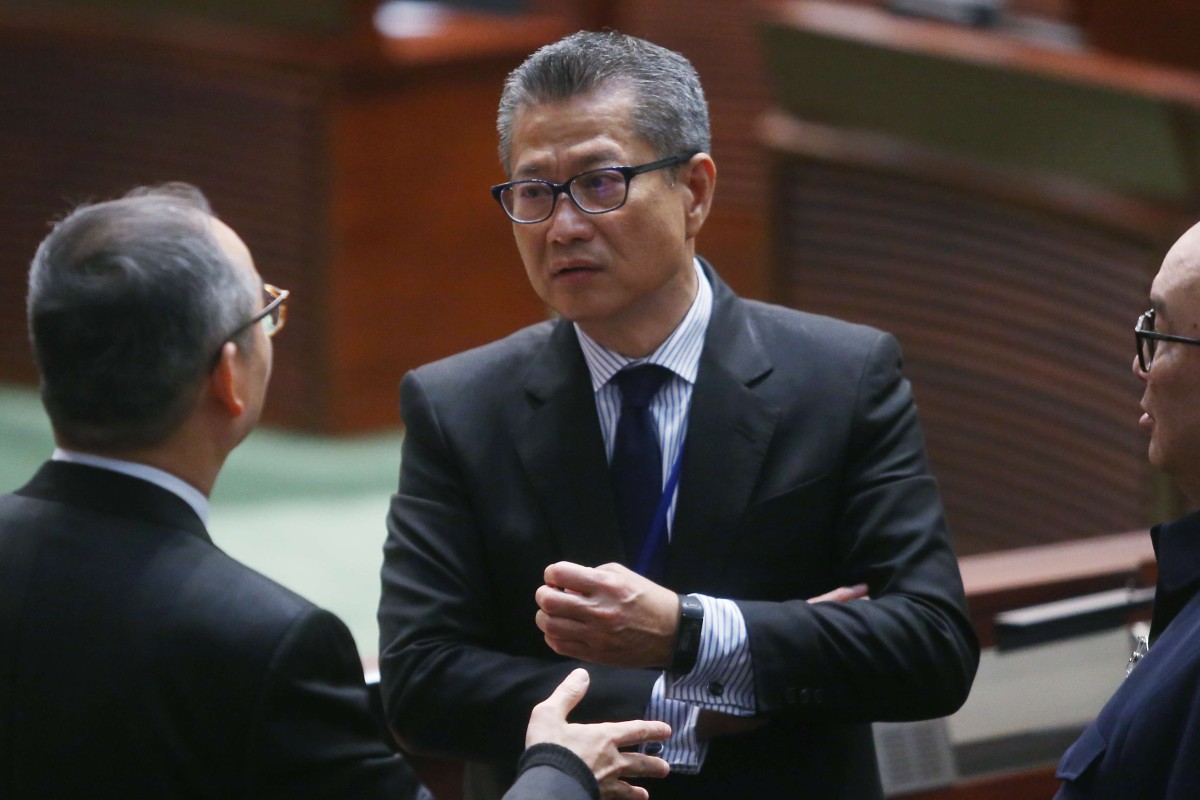
Teachers are pleased that some extra money is being invested in kindergarten-level education
 Financial Secretary Paul Chan Mo-po (right) is going to spend the money to make education better.
Financial Secretary Paul Chan Mo-po (right) is going to spend the money to make education better. Educators were satisfied with the new budget address that was delivered by newly appointed financial secretary Paul Chan Mo-po today, even though more financial support should be given to improve the education system.
Chan announced the budget address in the Legislative Council chamber today. It was the last one under Chief Executive Leung Chun-ying’s administration. Chan came in after his predecessor, John Tsang Chun-wah, resigned to run for the city’s top job.
Last year, Tsang forecast a surplus of HK$11 billion for the 2016/17 financial year. But that estimate proved conservative, as the city’s cumulative surplus reached HK$65.4 billion by the end of December, with reserves totalling HK$908.3 billion.
Education is one of the speech’s key focuses. Chan will implement the free quality kindergarten education policy from the 2017/18 school year to replace the pre-primary education voucher scheme. That policy will increase the government’s financial commitment to pre-primary education by about HK$2.7 billion annually.
Hok Yau Club Student Guidance Centre director Ng Po-shing saw the government place more emphasis on kindergarten education. “The free quality kindergarten education policy means more manpower is needed. With better career prospects, the competition to get into early childhood education programmes will become more intense,” he says.
Dr Amelia Lee, programme director at Baptist University’s School of Continuing Education, welcomed the kindergarten education policy as the voucher scheme was very inconvenient for parents. They had to fill in a lot of forms to apply for the scheme, she says.
Chan also decided to regularise the Study Subsidy Scheme for Designated Professions/Sectors (SSSDP) from the 2018/19 academic year, increasing the number of places from about 1,000 per cohort to 3,000. He expected that about 13,000 students will benefit from the scheme each academic year, involving an expenditure of about HK$850 million per year, Chan says.
However, Ng said increasing the number of SSSDP’s places was not enough. He hoped more spaces could be created on the government-funded bachelor degree programmes. However, Hui Wai-tin, principal lecturer at Baptist University’s Department of Education Studies said it was pragmatic to increase the spots for the SSSDP programmes because they are career-oriented.
“The budget shows the government is more concerned about the post-secondary professional development of young people. With skills and techniques young people build in the SSSDP programmes, it’s easier for them to look for jobs,” says Hui.
To encourage private investment in local IT start-ups, the government is setting up a HK$2 billion Innovation and Technology Venture Fund. The fund will invest in local IT start-ups along with venture capital funds on a matching basis of about 1:2, he says.
“A start-up wave has emerged in recent years. With creativity, technology, knowledge, entrepreneurship and hard work, many young people have succeeded in starting their own businesses,” Chan says.
Ng says the Innovation and Technology Venture Fund was useful for young people to start their businesses as they usually didn’t have enough money.